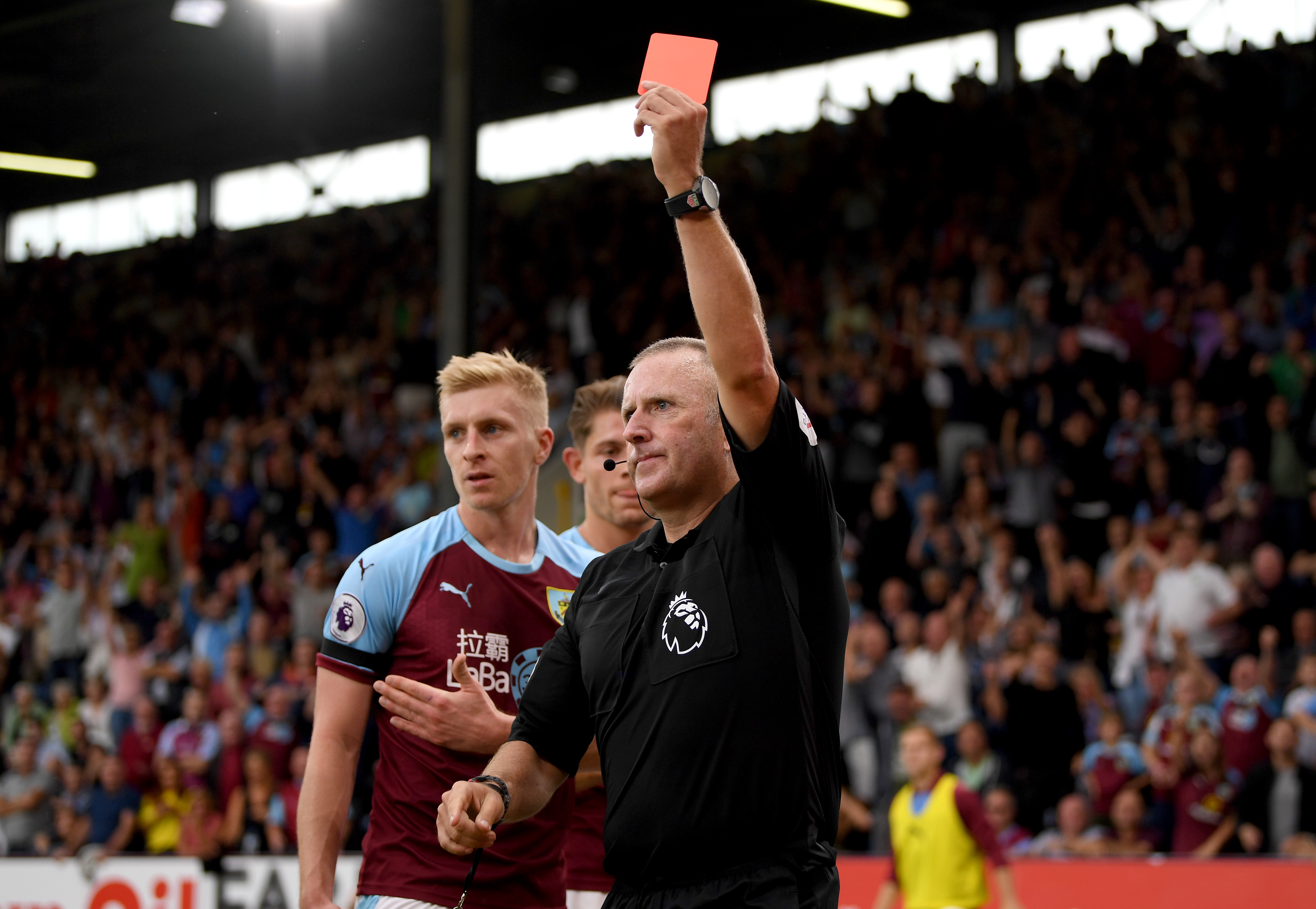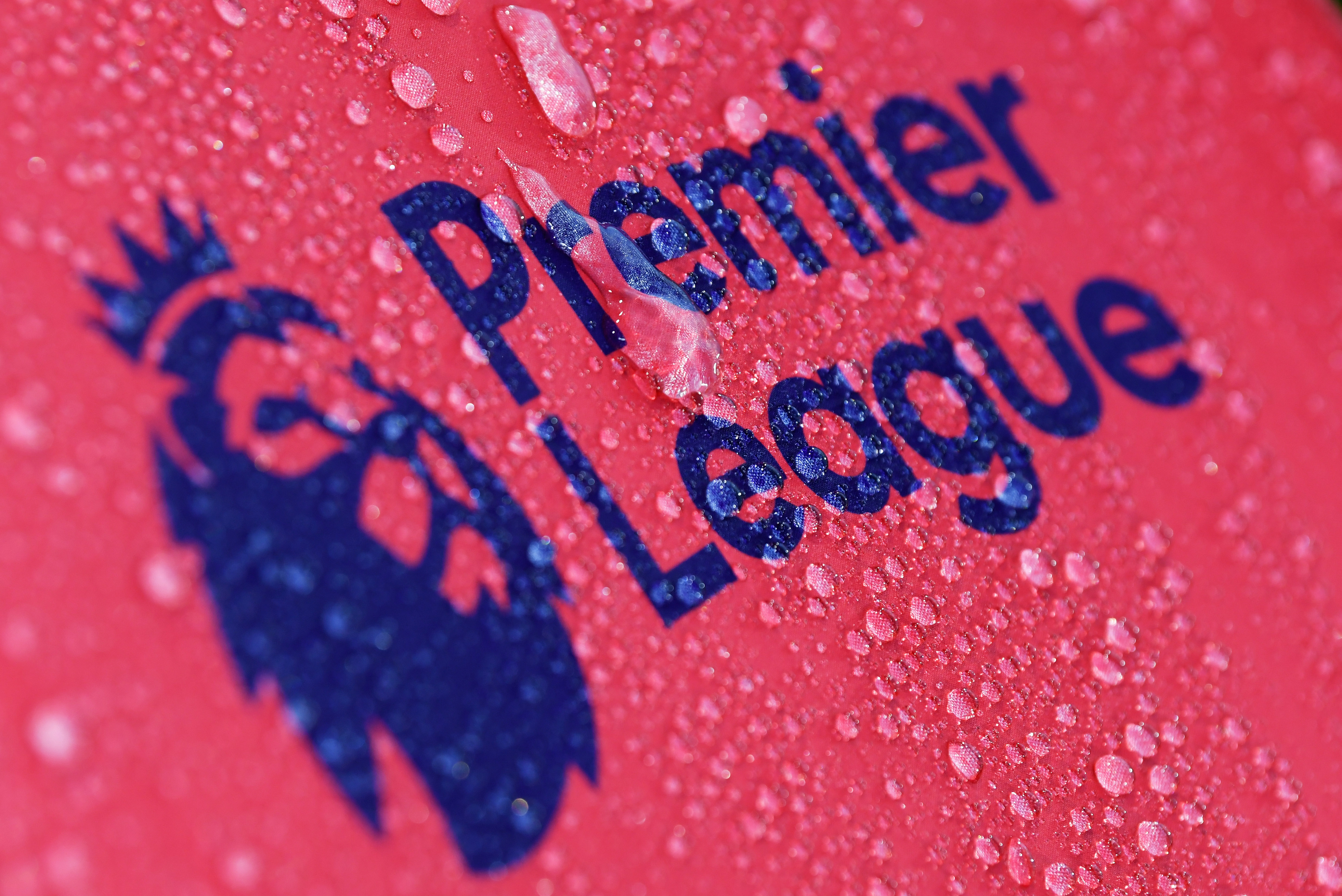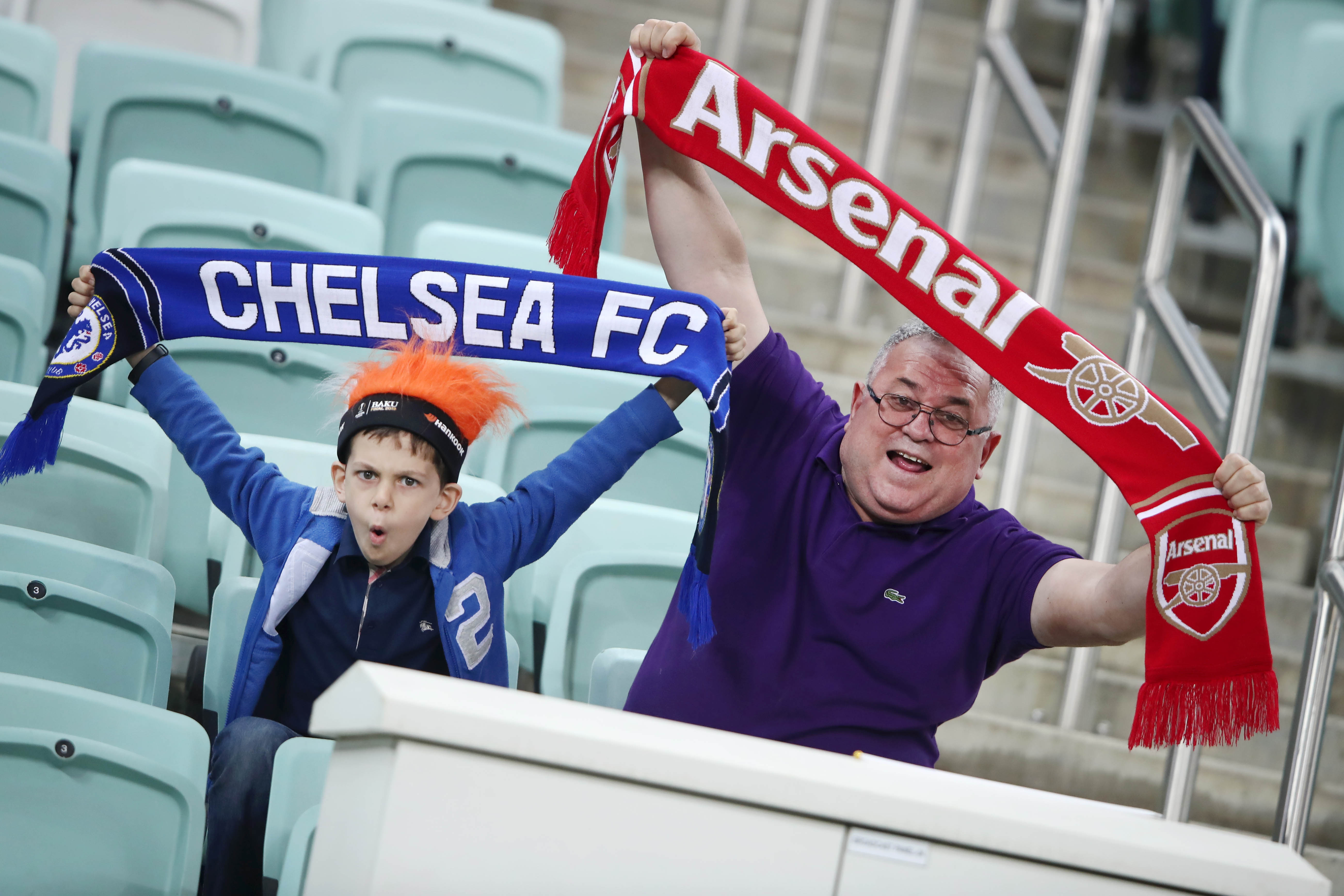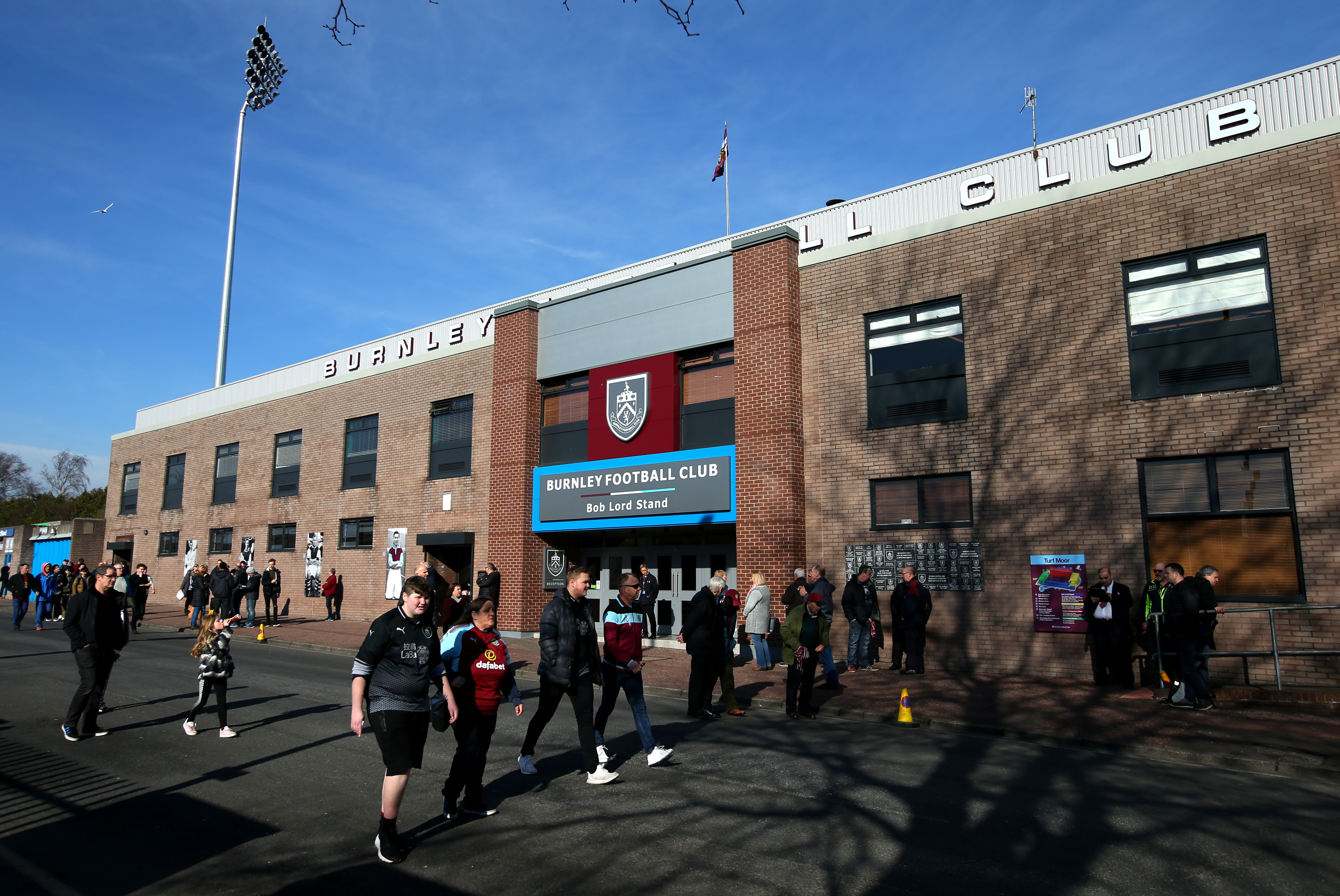The PGMOL continues to divide opinions, and some staggering decisions over two weeks of football have begun to take their toll.
In a different theme at the start of the Premier League season, it is not the winning teams or the disappointing sides that have taken centre stage. Instead, it is the PGMOL who have begun the season with a bang with some jaw-dropping decisions in the opening two weeks of the campaign.
Some Arsenal fans will argue the officiating cost them around six points last season, which may have been good enough for them to win the league. Like the Gunners, every other team faced these problems, which, in hindsight, balances the equation. But it is not good for the game.
And in case you missed the first full VAR Review of the season:
🔵 Handballs against Jackson, Rice, etc
🔵 How VAR offside checks are getting quicker
🔵 Why Everton's "goal" could never have counted
🔵 Pens at Brentford v Spurs
🔵 Martinez red
🔵 More!https://t.co/CxF8lbF3NY— Dale Johnson (@DaleJohnsonESPN) August 15, 2023
Taking this above reference from ESPN’s Dale Johnson after the first game week, these were the contentious decisions. Now, what it does to the game is beyond incomprehensible for teams who are fighting for their objectives.
The bigger question is, have the PGMOL given themselves more power to allow papering over cracks during crucial moments in the game? There are times in every game when the wrong decision could become right because of the external pressure of either players or managers.
Referee Simon Hooper and his VAR colleagues barely even read the Andre Onana-Sasa Kalajdzic scene. It was a blatant penalty, even for the naked eye. Yet, Hooper wasted no time acting on their new guidelines to brandish a yellow card to a poor Gary O’Neil, expressing his opinions on the sidelines.
The yellow card immediately took away the attention from the ‘clear and obvious’ penalty towards the Wolves manager. It allowed a smart manoeuvre from the actual debate after the game. It does not help relegation-favourites Wolves, and imagine what a stellar result it would have been to snatch a late point at Old Trafford.
.@Wolves boss Gary O’Neil claims he was told by PGMOL referees’ officer Jon Moss that his side should have had a “blatant penalty” against @ManUtd 😳 pic.twitter.com/SoNxSh4tub
— Hayters TV (@HaytersTV) August 14, 2023
Jon Moss later visited the Wolves dressing room and apologised for their error in the whole debacle. Much like how these officials ignored the Brentford equaliser against Arsenal last season, these apologies do not mean anything to clubs. Those are only good enough to become receipts of wrongdoing, which has no bearing on future decisions.
A week later, Jordan Pickford clattered into Ollie Watkins, and Anthony Taylor did not hesitate to point towards the spot. What was the big difference between the Everton goalkeeper’s challenge and Onana’s? They were identical in their physical approach and intent. Moreover, Pickford should have seen red for how he almost knocked out the striker with that punch.
In summary, the problematic issues in two gameweeks have been staggering. If the PGMOL wants more ‘respect’ from players and managers, they might as well show some while officiating. Let us look at some problems with the new ‘process’ meant to curb discrepancies and improve the game, although it has been anything but that.
Have the PGMOL given themselves unprecedented power?
In a tense Premier League game, how can we expect a manager or a player to remain calm and composed throughout the 90 minutes? There will be moments when a coach snaps at some decisions or a player asks the referee to produce a yellow to his opposition counterpart, among other things.
😡 “The PGMOL have decided to take passion out of the game by booking any manager who shows any emotion whatsoever!”
🤦♂️ “The fact they can’t rescind Gary O’Neil’s yellow card is disgusting…”
Andy Goldstein goes in on the PGMOL for their new rule on booking managers 🔥 pic.twitter.com/OydkFnzYNU
— talkSPORT (@talkSPORT) August 15, 2023
Strangely, do these things warrant a yellow, especially when the officials themselves are wrong with their decision-making? We do not think so. If there is scrutiny over the tiniest of actions on the pitch or the sidelines, why not take precise measures to ensure every decision is correct?
Such is the nature of referring decisions, as the smallest of matters will result in a booking. What does the PGMOL intend to achieve with these new rules? We are all in for less time wasting and cautions for disrespecting the officials. Still, we also expect the referees to conduct themselves professionally and showcase fair gamesmanship.
The other night in the game at Selhurst Park, the Takehiro Tomiyasu sending-off remains a subject of intense debate. And rightfully so, as the PGMOL have yet to explain how the Japanese full-back warranted even a single yellow, let alone two, in a short span.
Only minutes before Tomiyasu received a caution for time wasting Jordan Ayew vehemently pulled down Bukayo Saka by his shirt. The result was a mild warning and nothing else, especially when the Ghanaian was already booked.
So what did Tomiyasu do to warrant a second yellow for barely ‘grabbing’ Ayew’s shirt moments after being cautioned for time wasting, which he did not do? The bigger question is why the PGMOL have rules that seem like they are wielding more power and look weak on teams that want to contest a decision.
Miss this week's VAR Review? Well, here it is, and it features:
🔵 Mac Allister red card
🔵 Szoboszlai penalty
🔵 Handball penalty against Romero?
🔵 Martínez on Romero
🔵 Pickford giving away a penalty
🔵 Soucek encroaching on penalty miss?
🔵 More!https://t.co/4hyDUbUUa8— Dale Johnson (@DaleJohnsonESPN) August 22, 2023
For instance, a yellow card can upgrade into a red if the VAR deems it necessary, but not a second yellow the referee produced. Had there been a VAR check on Tomiyasu’s second yellow, there is a 99% chance they would have cancelled it.
So why doesn’t a second yellow, resulting in a red get the privilege of going upstairs for a double-check? It allows more power to the on-field referee, in this case, David Coote, to wield unprecedented power and influence games incorrectly.
Every point in the title race matters, and Arsenal had to deal with Crystal Palace for around 27 minutes, including extra time with ten men. Similarly, Liverpool got reduced to ten men following the straight red card to Alexis Mac Allister. After the on-field referee brandished the red card, it was immediately confirmed by VAR as the right call.
Liverpool have since successfully appealed the sending-off. If the FA overturned the three-game ban, then why is there a gap between the two bodies of English football?
Rules are acceptable, but where is the consistency?
Ironically, Bruno Fernandes waited for Jon Moss to arrive in the Manchester United dressing room at the Tottenham Hotspur stadium. He never came with an apology. The Portuguese playmaker commented publicly about wanting one following VAR’s decision not to award a penalty for Cristian Romero’s ‘clear and obvious’ handball.
📺💭 Bruno Fernandes says Premier League referees should start doing interviews after games to explain decisions. pic.twitter.com/EJIS8QA7fw
— EuroFoot (@eurofootcom) August 19, 2023
While some may argue that no Manchester United player has the right to ask for such decisions following the Wolves debacle, Bruno Fernandes is right here. All he is asking for is consistency with decision-making, which has produced contrasting results in just two game weeks.
The Romero handball was a clear penalty which was not given. Similarly, Dominik Szoboszlai went to ground with the faintest of touches from Joe Rothwell. The referee barely even hesitated to award the spot-kick, and then VAR backed the decision.
In the Monday night game, Eberechi Eze went to the ground after connecting with a dangling leg from Thomas Partey, which got brushed away rather quickly. If the Szoboszlai incident was a clear penalty, so was the Crystal Palace one; if not, Eze deserved a yellow for simulation.
Going back to the Mac Allister red card, why wasn’t Bruno Guimaraes given one on the same day he stomped Phil Foden on the shin? This is the problem with the PGMOL, as they are ridiculously inconsistent with the decisions on incidents occurring quickly between them.
The game now has allowed more power to the referees, and the soap opera will likely continue for the foreseeable future. Despite all the promises of cutting out errors, the PGMOL will continue its trend of committing more and offering a list of reasons for their wrongdoings, followed by a useless apology. This particular trend has been the case for years now.
Clubs must follow the rules read out to them before games and remain professional. Who will govern the PGMOL if they keep committing errors after errors in a league where every point counts for all 20 teams? Hence, as things stand, the PGMOL wields unprecedented power, which needs checking, and it threatens to ruin the spirit of the game.





